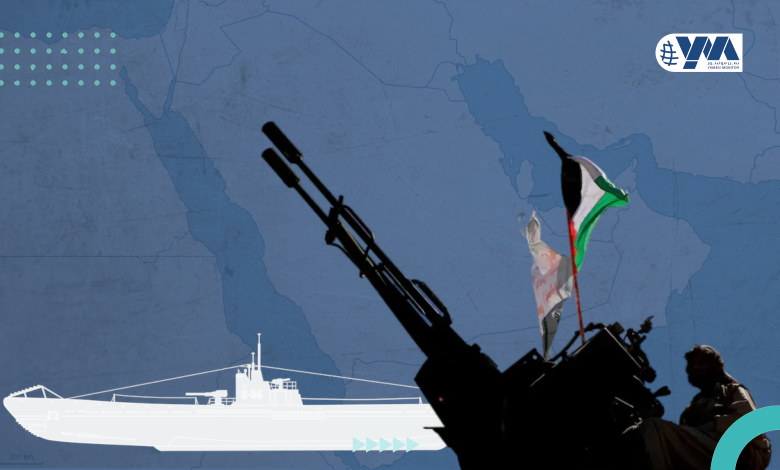Houthi threats to attack the Mediterranean Sea are “just noise and propaganda” – Risk Intelligence report

Yemen Monitor/Sana’a/Exclusive
“Houthi threats to expand their area of operations towards the Mediterranean Sea are just noise and propaganda, and should not be taken seriously,” according to a risk intelligence report issued by a European consulting firm.
Earlier this month, Houthi leader Abdulmalik al-Houthi delivered a televised speech in which he said the group was expanding its attacks on ships in the Eastern Mediterranean (which is about 1,900 kilometers (1,180 miles) from Yemen), until “Israel and the United States withdraw from Gaza and Yemen.”
He said on May 3: “We are preparing for a fourth round of escalation if the US and Israeli enemy continue their intransigence.”
Shortly thereafter, warnings came from Maersk, the shipping company, in a circular to customers, that “… the danger zone [in the Red Sea] has expanded, and attacks are reaching further afield.”
But Risk Intelligence CEO Hans Tino Hansen downplayed the threat, saying that without Iranian assistance, the Houthis would lack the resources to expand their sphere of influence westward.
The new report by the European firm, headquartered in Denmark, highlights that Hezbollah, Iran’s proxy in Lebanon, is well-positioned to carry out attacks in the Eastern Mediterranean, but has not yet done so.
The report says: “These capabilities have been in place for a long time,” but adds that actual attacks would not be geopolitically acceptable to Iran, representing “a major escalation that could have unintended consequences for Iran’s network of proxy groups as well as Iran itself.”
The report continued that “the eastern part of the Mediterranean Sea theoretically falls within the range of some of the weapons used by the Houthis.” “However, attacking moving targets at sea over such a distance would be a very complex matter. In addition, missiles or drones would need to avoid deterrent defense systems en-route.”
Of the known smart missiles and ballistic missiles in Houthi possession, few have an operational range of up to 800 kilometers, all Iranian. The rest are old Soviet and Chinese models, with limited range.
While the Houthis have begun targeting ships far from Yemeni waters, including ships in the Arabian Sea about 600 kilometers from the country, almost all of their successful strikes have been at shorter distances. The Houthis receive military training and intelligence support from Iran, which is critical when targeting moving targets such as ships – as the US Bloomberg agency says.
Accurate targeting would require a lot of equipment for coordination by sea assets within the theater of operations, something the Houthis have been able to access in the Red Sea due to Iranian spy ships. But performing this role in the Mediterranean would be much more difficult.
The report concluded that “with taking into account the Houthis’ inaccurate attacks against southern Israel in recent months, attacks against commercial ships in further reaches of the Eastern Mediterranean are unlikely to be successful.”
The Houthis have threatened ships linked to Israel, the US and the UK. They have already closed the southern Red Sea to most Western ships, forcing them to avoid the Suez Canal and detour instead around South Africa on their voyages between Asia and Europe. This adds days and a lot of fuel and shipping costs to the journeys.




